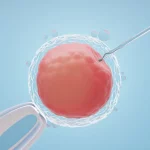
Introduction
As medical professionals, we understand that choosing the right assisted reproductive technology (ART) is a deep personal decision. Among the options available, frozen embryo adoption and egg/sperm donation are two pathways that offer hope to individuals and couples facing infertility. This comprehensive guide aims to provide an unbiased comparison of these options, incorporating current medical protocols, regulatory guidelines, and ethical considerations to assist you in making an informed choice.
Understanding the Basics
Frozen Embryo Adoption
Frozen embryo adoption involves the transfer of surplus embryos, created by other individuals or couples undergoing in vitro fertilization (IVF), to recipients seeking to achieve pregnancy. While often termed “adoption,” legally, this process is considered a property transfer, not a traditional adoption, due to the embryos’ legal status.
Egg and Sperm Donation
Egg or sperm donation entails receiving gametes from a donor to facilitate conception. In egg donation, a donor undergoes a medical procedure to retrieve eggs, which are then fertilized with sperm from the recipient’s partner or a sperm donor. Sperm donation involves the recipient using donor sperm to fertilize their own or a partner’s egg. The resulting embryo is then implanted into the recipient’s uterus or that of a surrogate.
Medical Procedures and Considerations
Embryo Adoption Process
- Matching and Legal Agreements: Recipients are matched with donor embryos through agencies or clinics. Legal contracts are established to transfer rights from the donors to the recipients.
- Medical Preparation: Recipients undergo medical evaluations to ensure they can safely carry a pregnancy. Hormonal treatments prepare the uterine lining for embryo implantation.
- Embryo Transfer: The selected embryo(s) are thawed and transferred into the recipient’s uterus.
- Pregnancy Monitoring: Standard prenatal care follows to monitor the pregnancy’s progress.
Egg Donation Process
- Donor Selection and Screening: Donors undergo rigorous medical and psychological evaluations to ensure suitability.
- Ovarian Stimulation: Donors receive hormonal injections to stimulate egg production.
- Egg Retrieval: A minor surgical procedure retrieves the eggs from the donor’s ovaries.
- Fertilization and Embryo Transfer: Retrieved eggs are fertilized with sperm, and resulting embryos are transferred to the recipient’s uterus.
Sperm Donation Process
- Donor Screening: Sperm donors are screened for genetic, infectious, and psychological factors.
- Sperm Collection and Storage: Donated sperm is collected, tested, and frozen for future use.
- Insemination or IVF: Recipients may undergo intrauterine insemination (IUI) or IVF using donor sperm.
Legal and Ethical Considerations
Embryo Adoption
- Legal Status: Embryos are legally considered property, not people, leading to contracts that transfer ownership rather than parental rights.
- Parental Rights: Recipients are recognized as the legal parents upon the child’s birth, with no need for adoption finalization.
- Ethical Perspectives: Some view embryo adoption as giving life to unused embryos, aligning with certain moral or religious beliefs.
Egg/Sperm Donation
- Donor Anonymity: Laws vary regarding donor anonymity and the rights of offspring to access donor information.
- Parental Rights: Donors typically relinquish all parental rights, and recipients are recognized as legal parents.
- Ethical Considerations: Concerns may arise regarding the commodification of human gametes and the psychological impact on donor-conceived individuals.
Emotional and Psychological Aspects
- Embryo Adoption: Offers the experience of pregnancy and childbirth, which can enhance bonding. However, recipients may grapple with the knowledge that the child is not genetically related to them.
- Egg/Sperm Donation: One parent may have a genetic link to the child, which can influence family dynamics. It’s essential to consider the implications for the child’s identity and the family’s openness about the donation.
Success Rates and Outcomes
- Embryo Adoption: Success rates vary but are generally comparable to traditional IVF, with factors such as embryo quality and recipient health playing significant roles.
- Egg Donation: Often yields high success rates, particularly when using eggs from young, healthy donors.
- Sperm Donation: Success rates depend on the recipient’s fertility and the method used (IUI vs. IVF).
Making the Right Choice
Choosing between frozen embryo adoption and egg/sperm donation is a deep personal decision influenced by various factors:
- Desire for Pregnancy: Embryo adoption and egg donation allow the recipient to experience pregnancy, while sperm donation may involve a partner or surrogate.
- Genetic Connection: Consider the importance of a genetic link to the child for one or both parents.
- Financial Resources: Evaluate the costs associated with each option and explore potential financial assistance or insurance coverage.
- Ethical and Religious Beliefs: Reflect on personal values and how they align with each reproductive option.
- Legal Considerations: Understand the legal implications and ensure all agreements are documented.
Conclusion
Both frozen embryo adoption and egg/sperm donation offer viable paths to parenthood for those facing infertility. Each option presents unique medical, legal, ethical, and emotional considerations. Prospective parents are encouraged to consult with fertility specialists, legal advisors, and counselors to navigate these complex decisions and choose the path that best aligns with their circumstances and values.
Note: This article is intended for informational purposes and does not substitute professional medical or legal advice. Always consult with qualified professionals when making decisions.

Dr. Veera Saghar
As an Egg Donor Coordinator, she plays a critical role in our company. Her background as a medical graduate from ISRA UNIVERSITY in Pakistan provides us with a solid foundation in the medical sciences. She has seven years of clinical experience practicing in the USA. This has given her firsthand experience when collaborating with patients and their families.
She is responsible for managing the process of egg donation from start to finish. We identify and screen potential egg donors.





